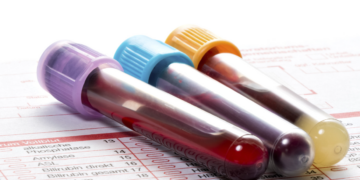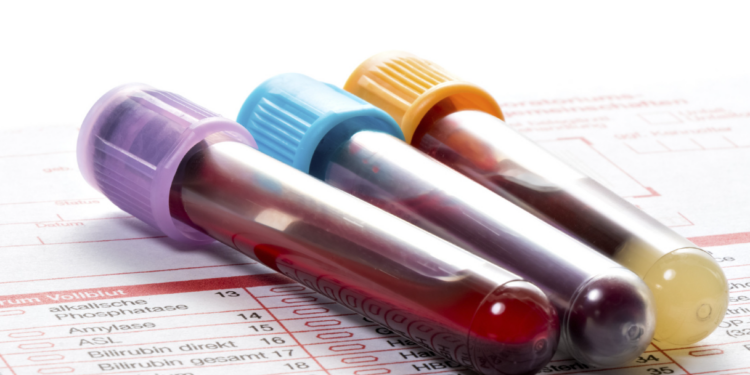Blood testing is an important part of any medical checkup, whether you are trying to have surgery or you just want a minor diagnosis of any medical condition. While things might be pretty clear to a physician or a doctor, it is a whole different story for patients. There are so many different types of blood tests these days that it is natural to become a little bit confused in the first place. To be honest, there are more than 100 different blood works that take place in a lab. But then there are some common ones that are recommended in all cases. In order to make sure that the patient gets the best possible treatment, it is important to have a proper understanding of these blood tests. So, let us have a look at some of the common blood tests and what they actually entail.
- Chem 7
More commonly known as a Blood Chemistry panel or a Metabolic panel, this is a common test that determines the levels of different enzymes that are present in the blood. Not just that but it also helps figure out if the kidney is functioning properly or not. Apart from that, one can obtain the glucose levels in their body through this test. The tests included in this panel are BUN or Blood Urea Nitrogen, Creatinine, Serum Glucose, Carbon Dioxide, Serum Chloride, Serum Potassium and Serum Sodium.
- CBC
The CBC or the Complete Blood Count lab test is done to examine different cells that create human blood. With a CBC report, the doctor will learn whether the blood of a patient is producing the required number of cells in each type. Apart from that, the test report also indicates if the patient has any clotting, bleeding, or infection issues. Doctors often recommend this test after surgery to see if an emergency blood transfusion is necessary or not. Blood tests that are included in CBC are WBC count, RBC count, Platelet count, Haematocrit, and Haemoglobin. A similar test like CBC is called H&H but it only measures the levels of Haematocrit and Haemoglobin in the blood.
- PT, PTT, & INR
The combination of PT, PTT & INR is also called a coagulation panel. These tests are mandatory when the physician wants to determine the blood clotting ability of a patient. If the clotting ability is distorted, it means that there might be some problems during surgery since it is the time when bleeding is expected commonly. In case the report shows that the clotting ability is impaired, surgery will be delayed in order to avoid bleeding during the process. Also, the test is used when one needs to monitor the effects of Coumadin, which is a medication that results in blood thinning.
- Liver Enzymes
There are several blood tests that are done to ensure that the enzymes in the liver and the organ itself are functioning properly. Since the liver has a very important role to play in the removal of anaesthesia from the blood, it is an important test for sure. Before any surgical procedure, a doctor will recommend this test and if the reports have elevated numbers, it means that liver function is impaired or the liver is severely damaged. Along with the liver panel, doctors also suggest a CGT which is a test that determines if any damage is done to different surrounding ducts in the liver.
In a typical liver panel, these tests included are Aspartate phosphatase, Alkaline phosphatase, Alanine aminotransferase, total bilirubin, direct & indirect bilirubin, albumin, etc.
- Arterial Blood Gas
With the arterial blood gas test, one can determine the functioning of the respiratory system as well as the levels of blood oxygen. This is a common test where blood is drawn from the artery and is typically taken from the radial artery that is situated in the wrist. In a typical ABG, the tests included are pH, HCO3, PO2, PCO2, O2, etc. In case the patient is on the ventilator, an ABG test will be performed once every single day to see if there are any changes needed.
- ABO Typing
This is another one of the most common blood tests that help in determining the blood type of a person. An ABO typing test will be done prior to any surgery so that the patient can get the right blood type during surgery, if necessary. While most surgeries don’t necessitate blood transfusion, there are some procedures that do such as on-pump heart bypass and more. Patients are required to sign a particular consent form before their surgery for proper blood administration if necessary.
- Blood Culture & Sensitivity
In a blood culture, a sample of the blood will be drawn and collected in a bottle that has a sterile culture medium that is ‘feeding’ bacteria. The sample should be kept in a warm space for some days. The technicians will then check to see if there is any bacterial growth. If there is, then it indicates that the same bacterial growth might be happening in the patient’s bloodstream. In case there is bacterial growth, several antibiotics will then be administered via exposure of the sample to find out the most effective one. The same antibiotics will then be prescribed to the patient in order to treat the condition.
Conclusion
It is more than important to have a proper and general understanding of the common blood tests and what the results mean. You can absolutely have a consultation with a healthcare operator to understand the different nuances of the results in detail. These days there are provisions to book blood testing appointments at home from mobile apps for better convenience of patients.




























































